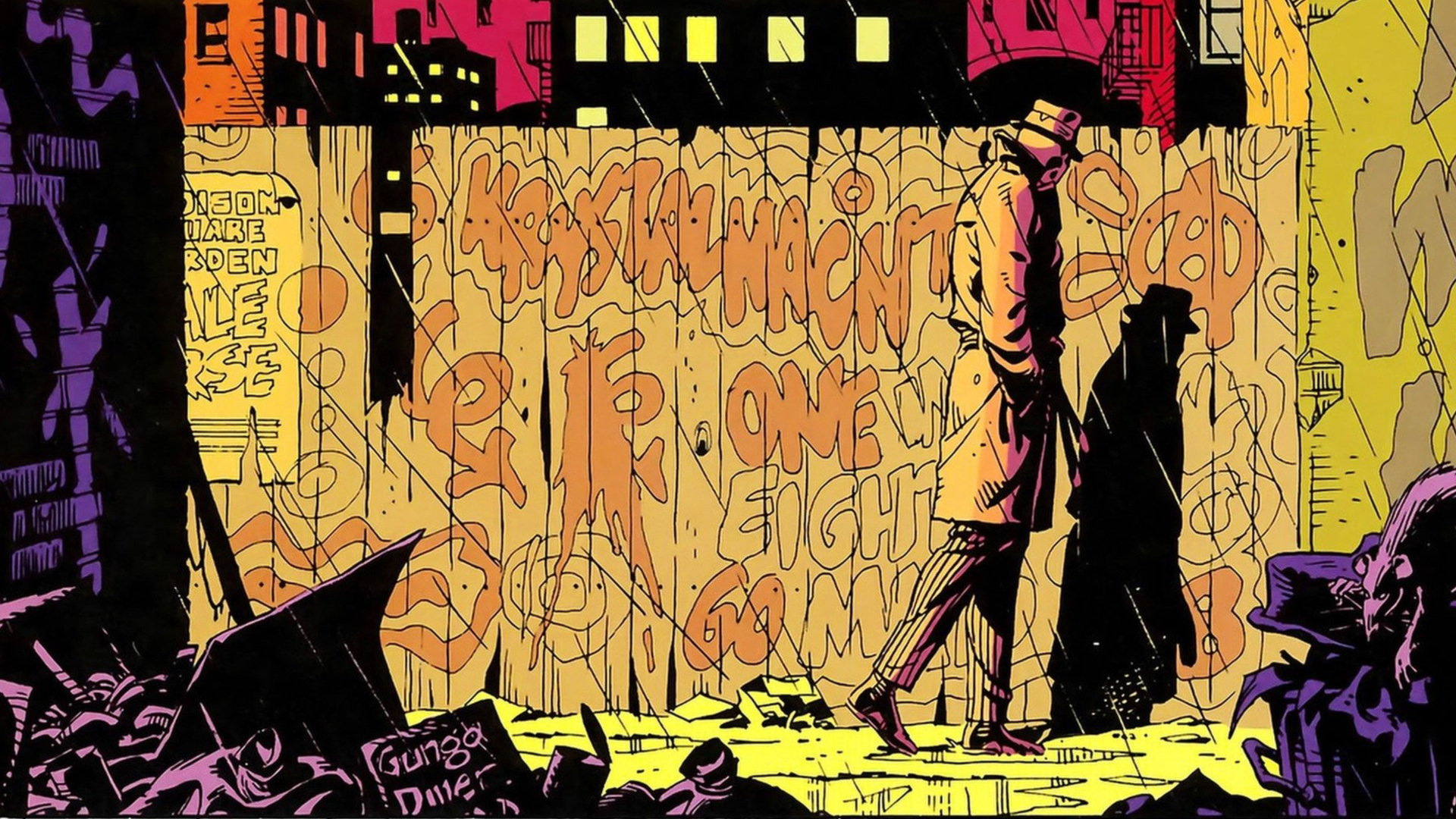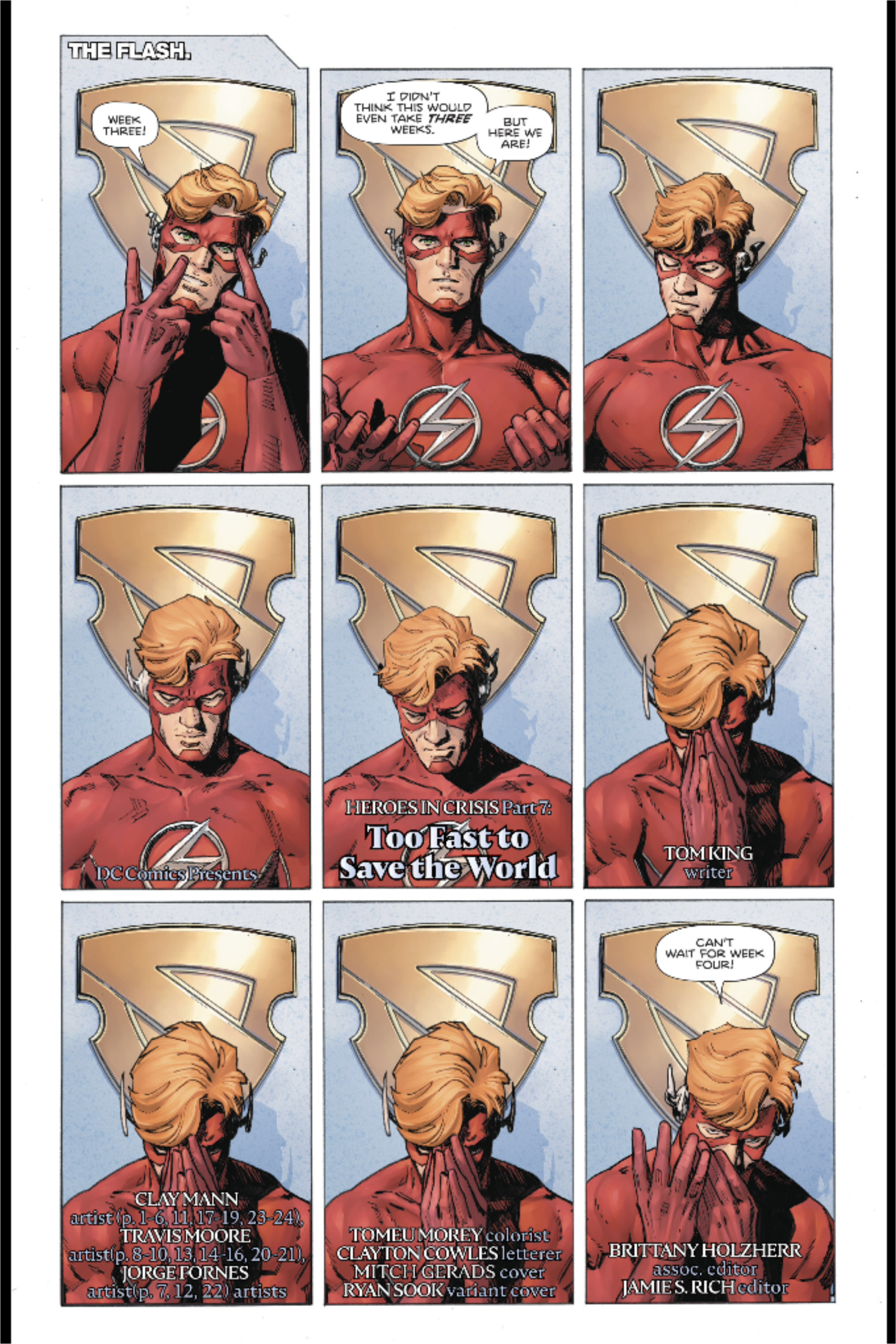
Alan Moore is often regarded as the most gifted author in the comic book realm. His writing significantly shaped the comic industry, leaving a lasting impact that persists even after he moved away from it. As a die-hard fan of his novel “Jerusalem“, I believe his talent has only grown since then. Moore’s creations were always marked by ambition, and he produced numerous groundbreaking series. The work he is best recognized for is “Watchmen“. This comic challenged the conventions of superheroes by dissecting them, revealing that our idols are just as flawed as we are, with their personal issues driving them to extremes that few dare to tread. “Watchmen” posited that heroes might not be infallible and perhaps we should question our trust in them. It’s a masterpiece, one that has been imitated but never truly replicated. However, attempts at duplicating it started emerging in the 2010s.
Over the years, numerous authors have attempted to dissect and redefine the concept of superheroes in a manner similar to Alan Moore’s influential work, but only one has managed to come close – Tom King. King climbed his way up the ranks as a writer, eventually taking on Batman comics, but it’s his miniseries that have earned him the most recognition. The upcoming Mister Miracle animated series, with King serving as showrunner, is testament to his talent. Today, however, we will delve into Tom King’s most contentious work – Heroes in Crisis. Despite being often criticized and making lists of the worst DC Comics events, I contend that there are redeeming qualities to it. In fact, I would go so far as to say that it represents one of the best deconstructions of superheroes since Watchmen.
Watchmen and Heroes in Crisis Both Showed Superheroes at Their Most Human

It’s not fair to compare “Heroes in Crisis” with “Watchmen,” as the latter has established itself as one of the greatest comics ever written, a masterpiece that truly marked the maturation of the comic book medium. Alan Moore and Dave Gibbons’ groundbreaking work is nearly flawless, with its writing and artistry unmatched by many other comics. It feels inaccurate to call “Watchmen” the best comic ever, as it surpasses most others so significantly. The only issue with “Watchmen” isn’t about the story; rather, it’s that after being praised by countless people for so long, some readers might feel a sense of resistance towards it. “Watchmen” has set a standard all its own, and while we may have personal preferences for other stories, no one would argue against its legitimacy. In contrast, “Heroes in Crisis” doesn’t seem to have many supporters.
The storyline initially titled Sanctuary eventually evolved into Heroes in Crisis. Known for his mastery of psychological narratives, this narrative centered around a superhero mental health center that was the foundation for the development of Heroes in Crisis. Despite its intriguing murder mystery plot, the storyline faces various issues. For instance, scenes depicting Harley Quinn escaping from Superman, Batman, and Wonder Woman are questionable. However, the dynamic duo of Booster Gold and Harley, along with Blue Beetle and Booster, shine in this book. The book truly excels when it delves into the testimonial sections where heroes open up about their personal struggles. These segments set in Sanctuary, where characters use the facility as a safe space to discuss the immense pressures of their jobs, make for compelling reading. In many ways, Heroes in Crisis mirrors the impact of Watchmen. It was engaging to witness DC’s most prominent heroes discussing their emotions, a facet that resonates with fans of King’s writing, as exploring the psychology of a superhero – a figure often battling significant PTSD – is fascinating.

Read Next
In a contrasting approach, Moore and King both critique superheroes, yet their motivations differ significantly. For Moore, it’s an expression of his anarchistic viewpoint, aiming to humanize these mythical figures. Take Swamp Thing, for instance – while Moore elevated Swamp Thing to a godly level of power, he also delved deeper than anyone else into the character’s human aspects. Though Moore may have stripped Swamp Thing of his literal humanity, he ultimately created a more well-rounded character. In works like “For the Man Who Has Everything,” Moore’s Superman yearns for normalcy. Doctor Manhattan is a god, but Moore portrays him as powerless in the face of time, emphasizing that even superheroes have human limitations. Moore seeks to demonstrate that superheroes are not superior beings, but rather reflections of our own potential for goodness and a caution against idolization. This theme runs throughout much of Moore’s work – suggesting that those in power hold their positions only because we allow them to, and we should question their authority.
King’s works appear to explore the concept that superheroes are flawed, perhaps as a means for him to grapple with his own experiences in the CIA. When I discovered King’s background in the War on Terror, it all made sense to me. A CIA agent, after all, is often perceived as a powerful figure operating in the shadows, more than just a regular soldier. They carry an air of mystery. In my opinion, King’s work, particularly “Heroes in Crisis,” seems to be a way for him to confront his own guilt. He seems to be saying that everyone is impacted when they are forced to do things that superheroes in the DC Multiverse and real-world intelligence agents have to do. This can be seen as another instance of demystification. It’s important to remember, King joined the CIA during the height of the War on Terror. The United States portrayed its military and intelligence forces as heroes fighting a survival battle against an implacable enemy. People were led to believe they would be heroes for joining. However, they committed atrocities. They were anything but heroic, even if their actions may have saved lives.
I can’t offer personal insights into King’s views, just his artistic expressions. King intends to portray that those we admire, the powerful individuals, bear a cost for their status. This perspective differs from Moore’s take on superhero deconstruction, but ultimately leads to the same conclusion: our heroes are reflections of ourselves. The graphic novel “Heroes in Crisis” may not rival “Watchmen” in terms of quality, but they both share a common goal – to illustrate that our idols are human, burdened with flaws and suffering. These imperfections often drive them to fight. Although opinions on art can be subjective, the general agreement is that “Watchmen” surpasses “Heroes in Crisis”. Nevertheless, they both aim to reveal the humanity within our gods.
King and Moore’s Work Comes From the Same Place

Alan Moore has always been known as a rebel in the literary world. Growing up during the ’70s and ’80s, Moore observed his homeland evolve into a more conservative society as a Baby Boomer. Much of his work reflects on the world he grew up in and how it has transformed over time. His writing can be seen as that of an aging hippie, still advocating for the world that his generation couldn’t fully create. Stephen King’s works, however, originate from a different perspective. Unlike Moore, politics are seldom present in King’s work. Instead, King avoids making grand statements about society and refrains from using superheroes to tackle societal issues. I believe King is aware of the criticism he has received in the past, so he chooses not to engage in political discussions through his works. Rather, King focuses on portraying the struggles faced by those who have endured the toughest trials in life.
Watchmen, in a nutshell, presents a complex tale set in extraordinary circumstances, and it’s deeply rooted in the 80s culture, offering a critique of the era of excess. Heroes in Crisis, unlike the sophistication of Watchmen, was used by then-DC leader Dan DiDio to diminish Wally West as a character and made questionable decisions with its characters that are hard to justify at times. However, like Watchmen, it delves into the psychological impact of being a superhero, exploring what this endless horror might do to them.
Regardless of your views on “Heroes in Crisis” and Tom King, it’s hard to argue against the impact this story has on superheroes. It serves as a brilliant demonstration of how even the mightiest heroes in the DC Multiverse can be brought down to our own level. Although I can’t fathom the feeling of vanishing from existence entirely, I do grasp the concept of profound loss. One of the rare positive aspects of “Heroes in Crisis” is its ability to humanize numerous heroes. Similar to “Watchmen”, it highlights the repercussions of living an extraordinary life. It sheds light on the transgressions we commit in our quest to resolve problems we’ve created ourselves.
These stories by King, such as Mister Miracle, The Vision, Batman, Human Target, Supergirl: Woman of Tomorrow, and others, all share a common theme of humanizing our beloved heroes. Similar to Moore’s work, they dissect characters and expose their humanity. I wouldn’t recommend you to prefer King’s work over Moore’s, but rather acknowledge that they both have a unique talent for penning exceptional Watchmen stories. While King and Jorge Fornes’ Rorschach is not written by Moore, it stands out as the best non-Moore written Watchmen comic project in my opinion. When examining their works closely, you’ll notice that they both deconstruct the myths we adore about our favorite legends, creating an unavoidable connection between them.
https://comicbook.com/comics/news/7-comic-book-characters-who-wouldnt-be-heroes-in-real-life/embed/#
Read More
- Masters Toronto 2025: Everything You Need to Know
- We Loved Both of These Classic Sci-Fi Films (But They’re Pretty Much the Same Movie)
- The Lowdown on Labubu: What to Know About the Viral Toy
- Street Fighter 6 Game-Key Card on Switch 2 is Considered to be a Digital Copy by Capcom
- Mario Kart World Sold More Than 780,000 Physical Copies in Japan in First Three Days
- ‘The budget card to beat right now’ — Radeon RX 9060 XT reviews are in, and it looks like a win for AMD
- Valorant Champions 2025: Paris Set to Host Esports’ Premier Event Across Two Iconic Venues
- Microsoft Has Essentially Cancelled Development of its Own Xbox Handheld – Rumour
- Gold Rate Forecast
- Karate Kid: Legends Hits Important Global Box Office Milestone, Showing Promise Despite 59% RT Score
2025-06-21 21:40